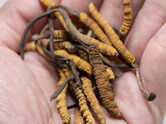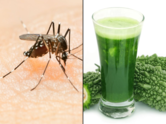01/6AIIMS study explores a new area of concern where COVID might have affected strongly

A team of researchers led by researchers at AIIMS Patna have found that COVID can lead to multi organ damage through the angiotensin-converting enzyme-2 receptor (ACE2), which is abundant in testicular tissue. ACE2 acts as the receptor for the COVID spike protein which facilitates the entry of virus into the host cells.
The study included 30 males, aged 19-45 years, and found that COVID infection negatively affects the semen quality. The study was done between October 2020 and April 2021.
The study has been published in the Cureus Journal of Medical Science.
02/6What did the researchers find?


The researchers conducted a real-time reverse transcriptase test on all the semen samples and found that the COVID infection has a negative effect on semen quality and sperm DNA fragmentation index and hence concluded that the infection causes a potential sperm damage.
In the first sampling, semen volume, vitality, total motility, sperm concentration, and total sperm count were significantly lower, the researchers said.
The findings were statistically significant suggesting "COVID-19 negatively affects semen parameters, including sperm DNA fragmentation index," the authors noted.
03/6"Although we could not find SARS-CoV-2 in the semen..."


The researchers have said that although coronavirus was not found in the semen, the semen quality deteriorated.
Based on the findings of their study they suggest assisted reproductive technology (ART) clinics and sperm banking facilities should consider assessing the semen of COVID infected males and recommend that these assisted reproduction facilities should exclude men with a COVID history until their semen quality comes back to normal.
Apart from this, reproductive complications have been associated with COVID.
04/6Case of bilateral orchitis in a 37-year-old man


A December 2021 review study talks about the occurrence of bilateral orchitis in a 37-year-old man who had suffered from COVID-19. The patient presented for testicular pain.
Orchitis is testicular inflammation. Viral or bacterial infections can cause orchitis. Mumps is the most common virus to cause orchitis and of the prepubertal males that develop mumps, 20% will develop this complication.
05/6What were his symptoms?


The patient complained of fevers, anorexia, myalgias, fatigue, and non-productive cough along with the typical symptom of the disease.
He noted that while other symptoms lasted for 10 days, the testicular pain had developed for the last 3 days. He was diagnosed with COVID 15 days earlier.
Researchers found that the cellular entry of the virus could have been possible because of the receptor present on the Leydig cells in the testis.
06/6Is it common?


Though effects of COVID associated with male fertility are not commonly seen, but the fact that they have a negative effect needs more attention towards this.
COVID infections are known to cause decreased sperm count, testicular inflammation, inflammation of sperm duct and testicular pain in males who are in the reproductive age. These complications affect the reduction in overall fertility.






















































































closecomments
SIGN IN WITH
FacebookGoogleEmail